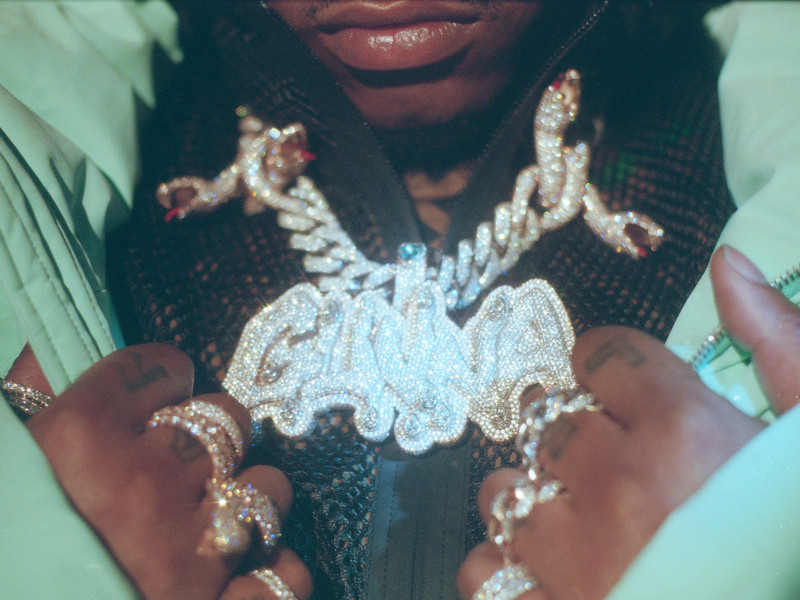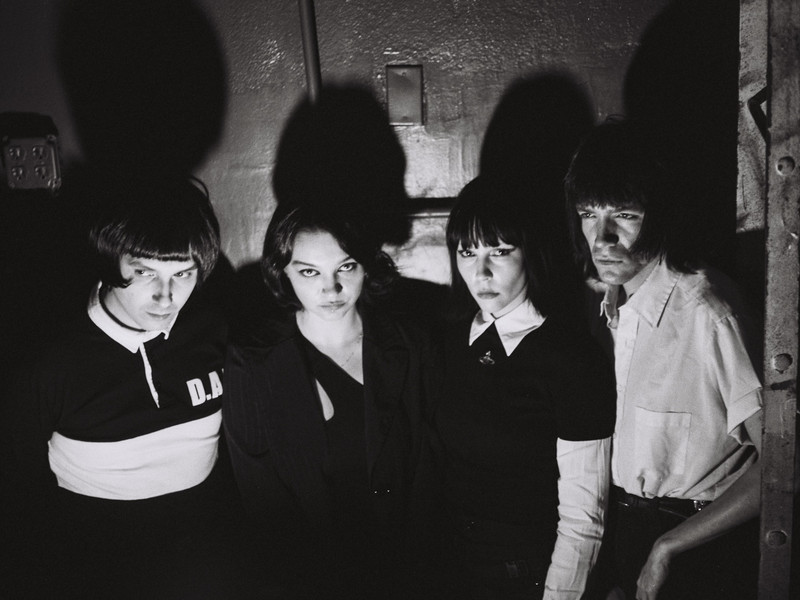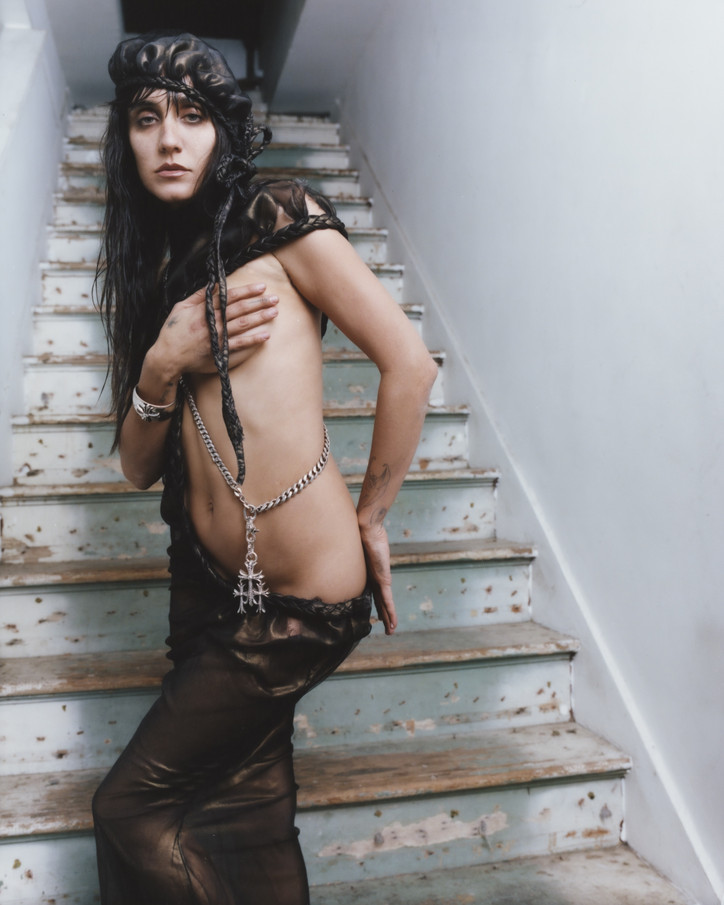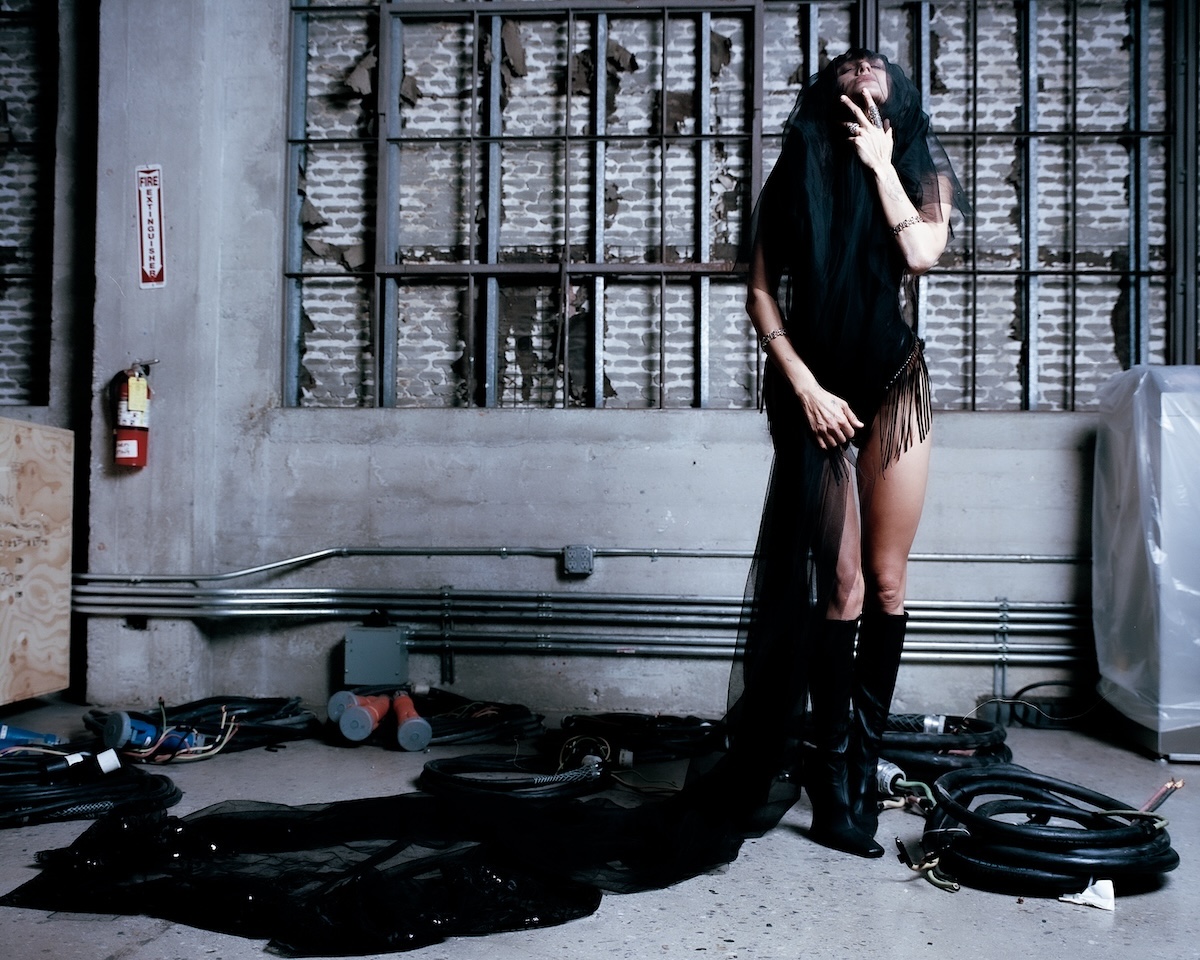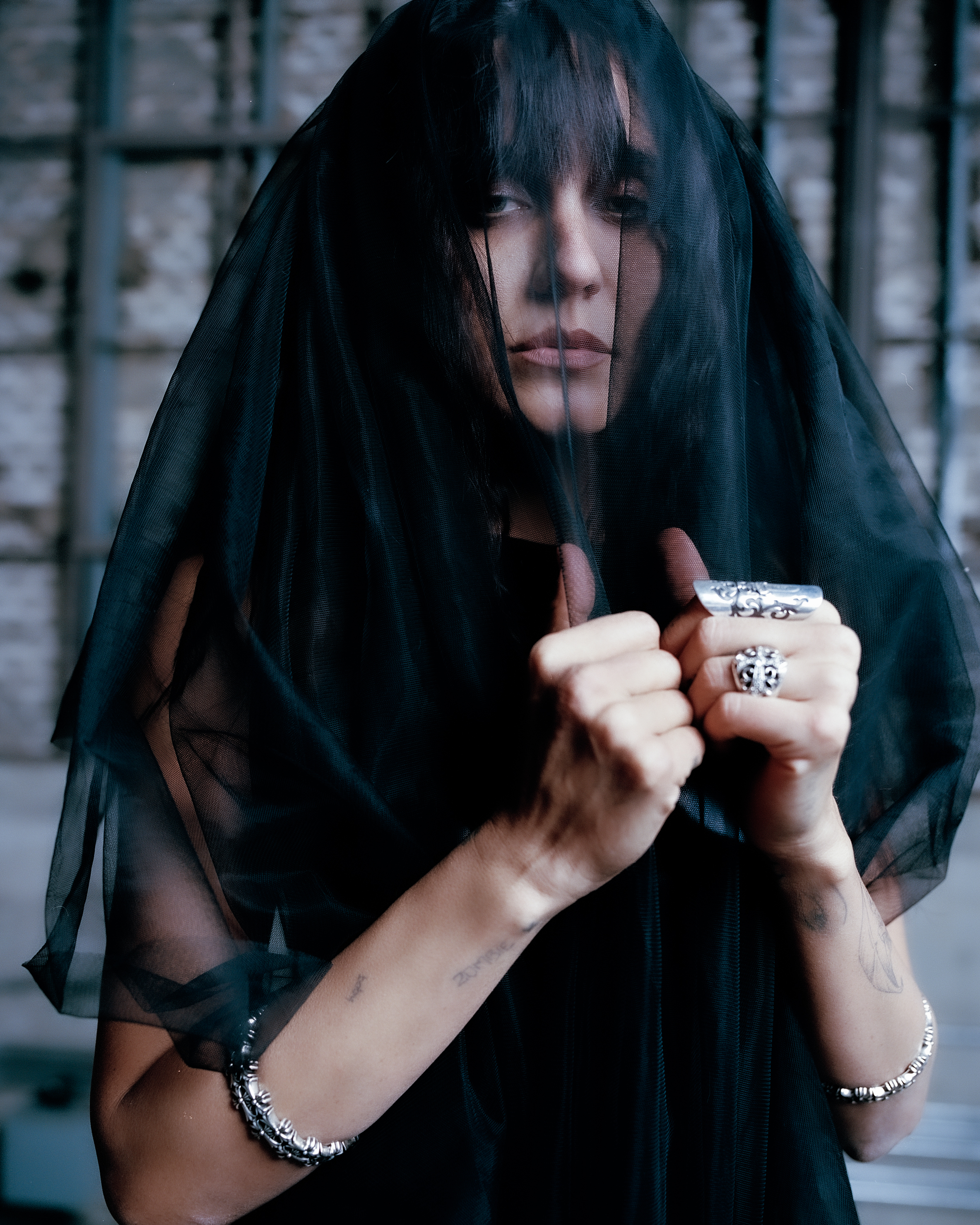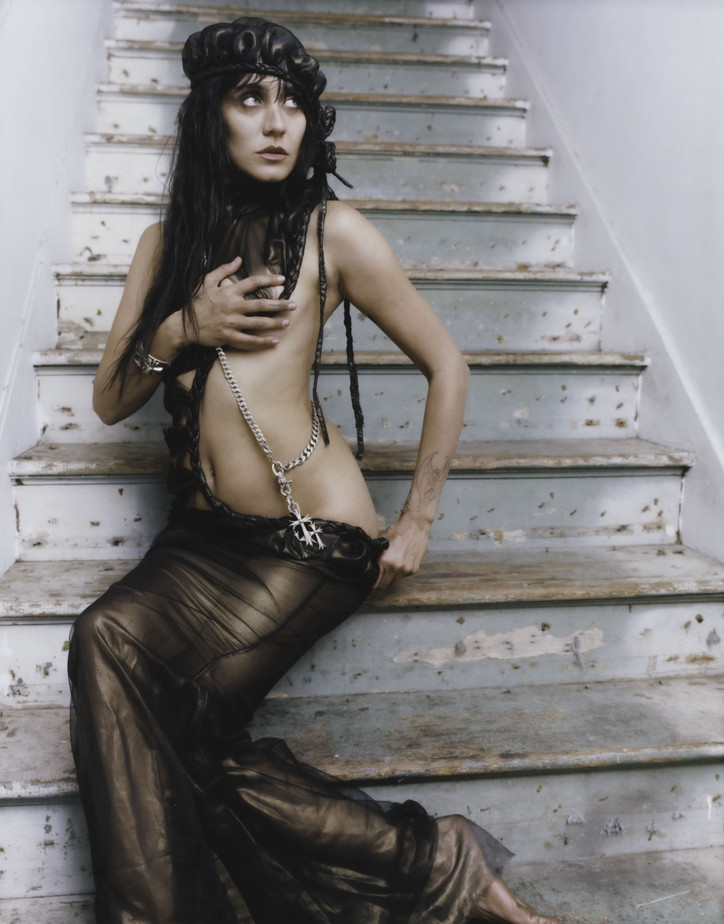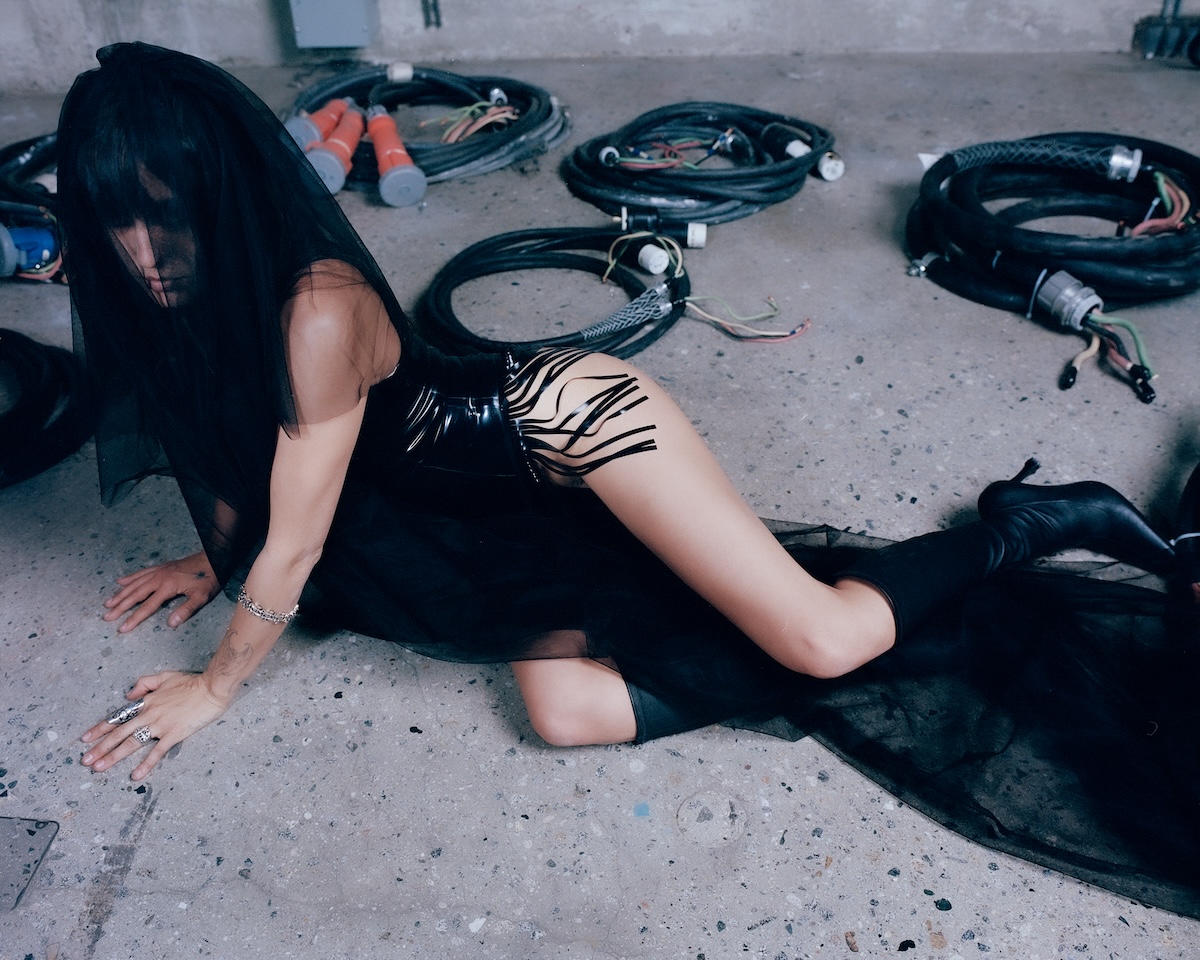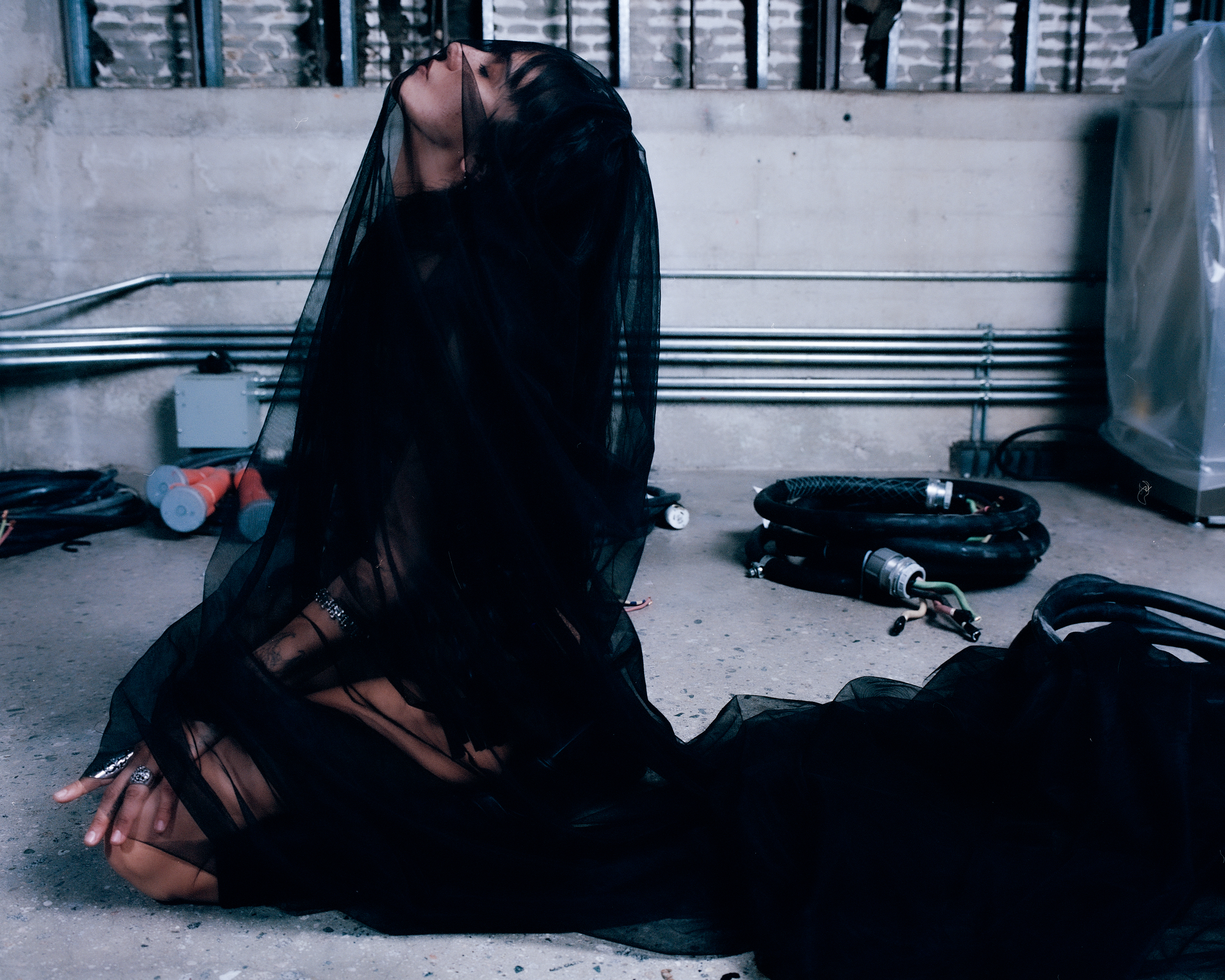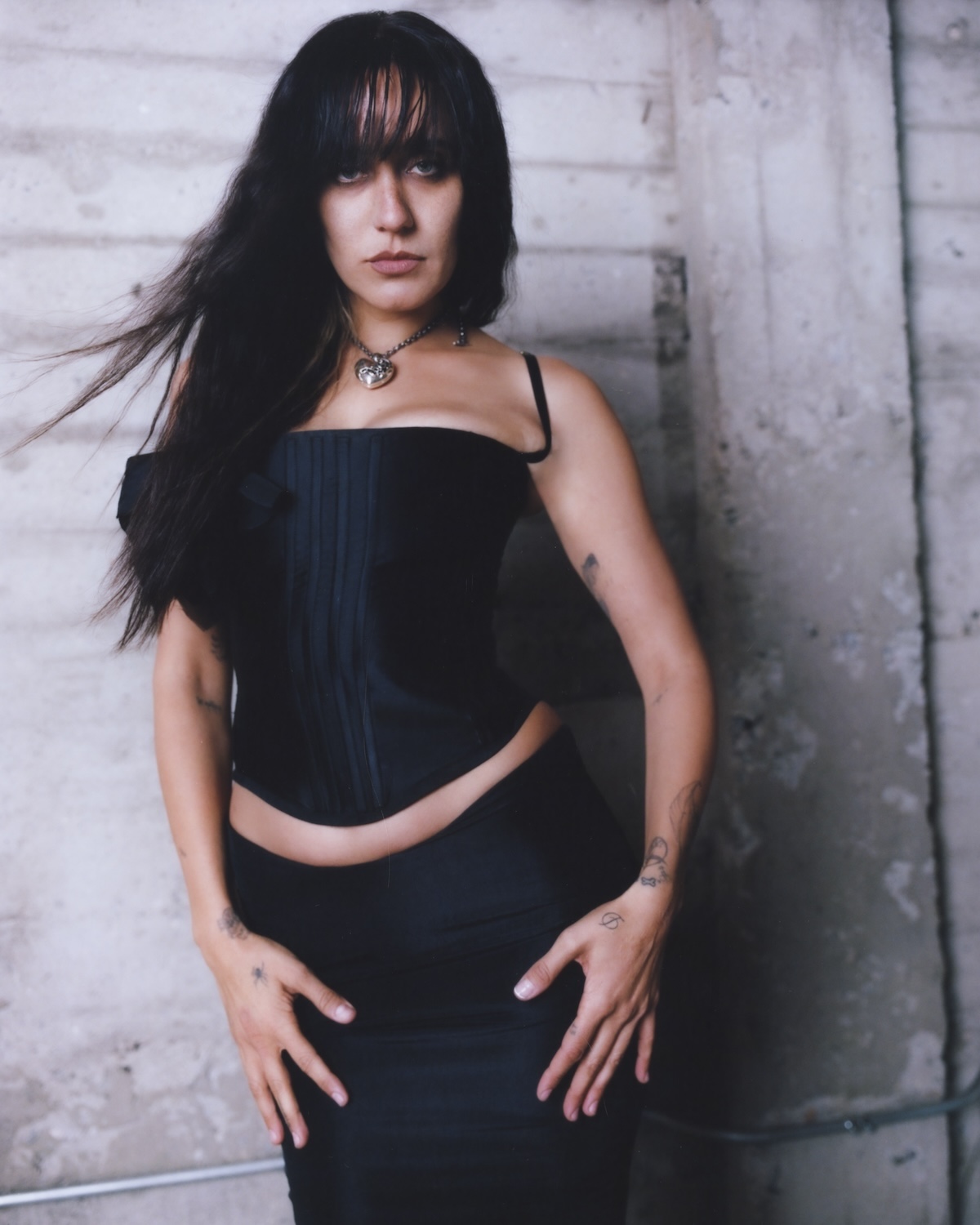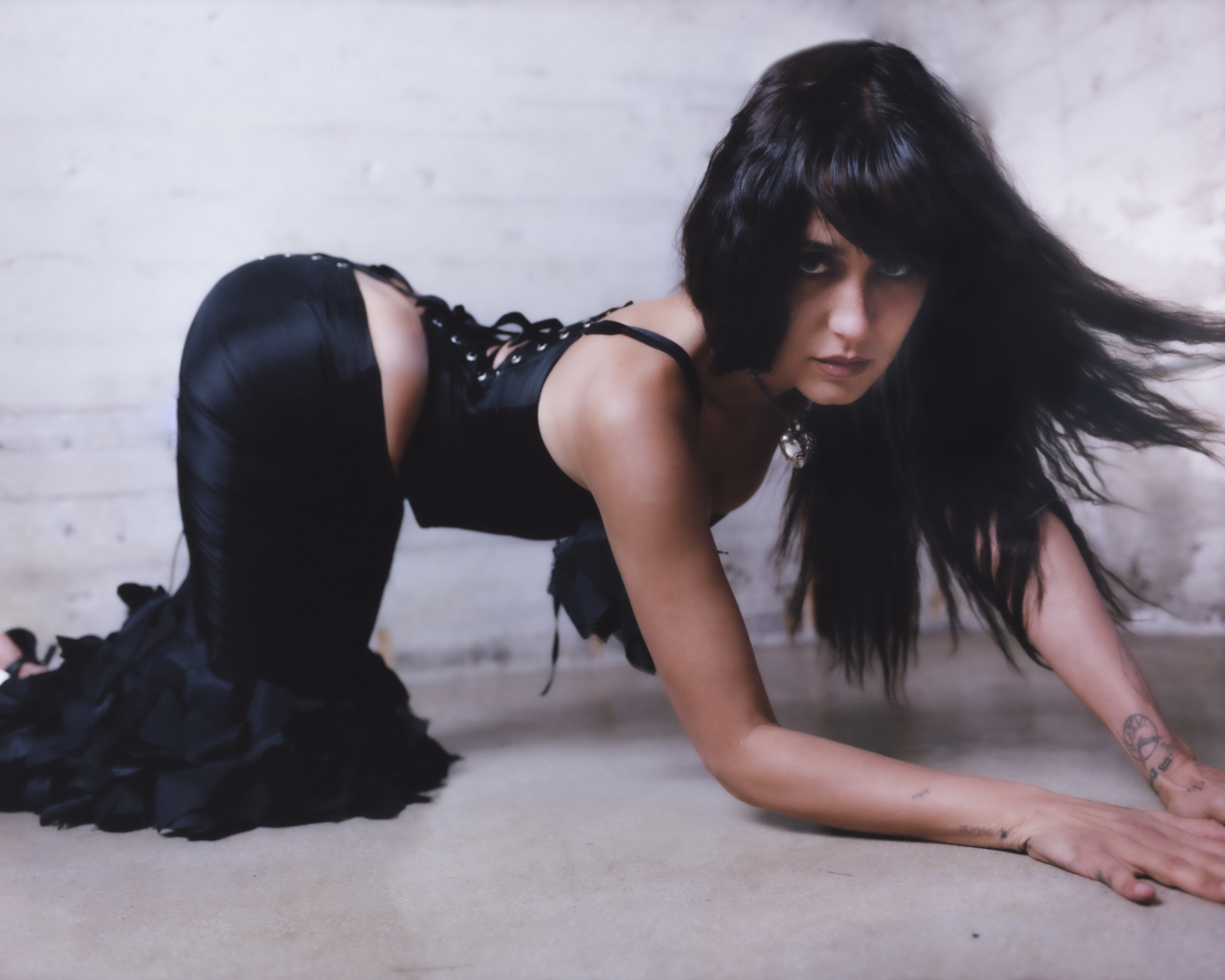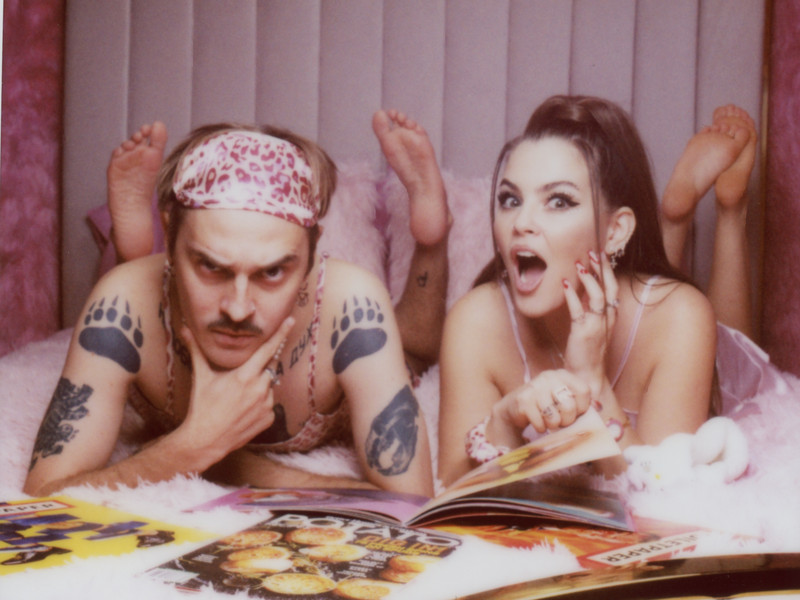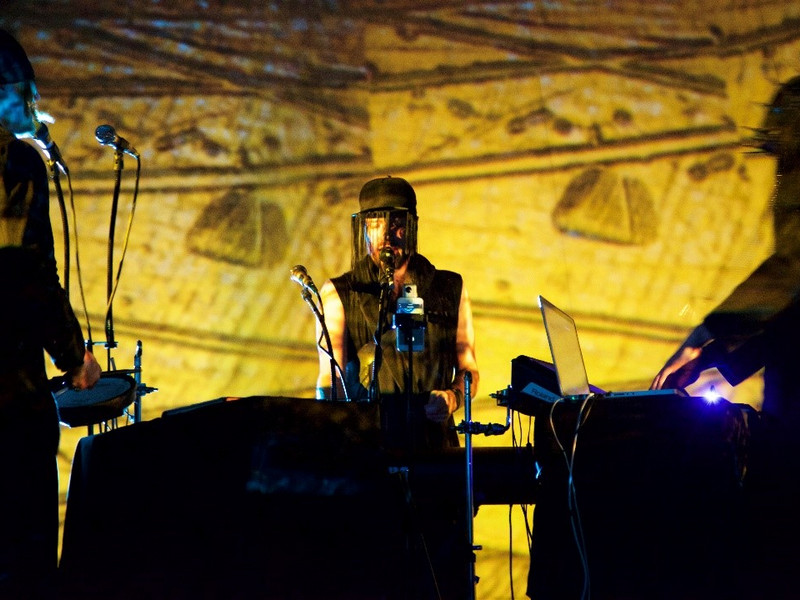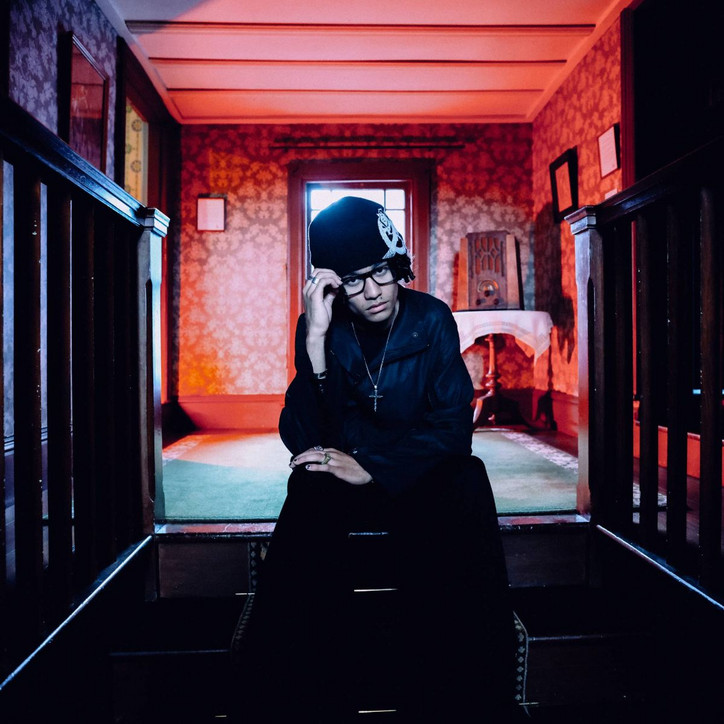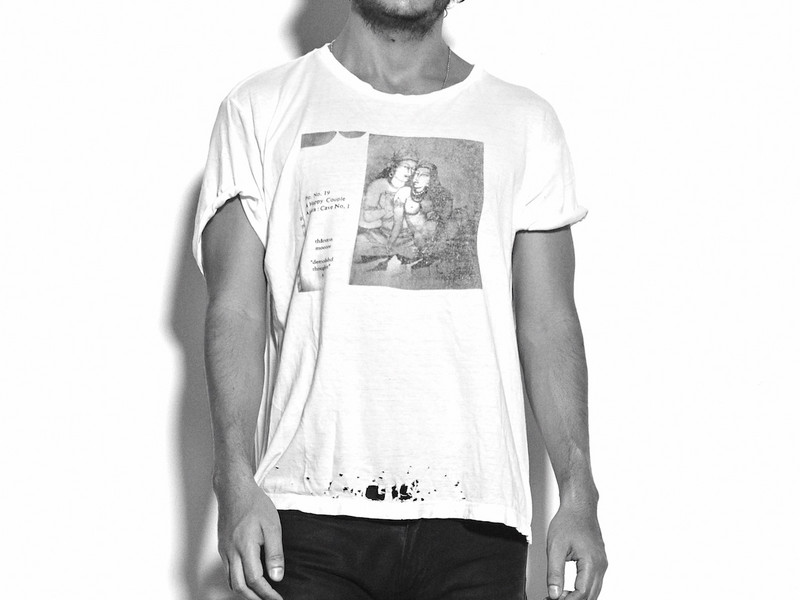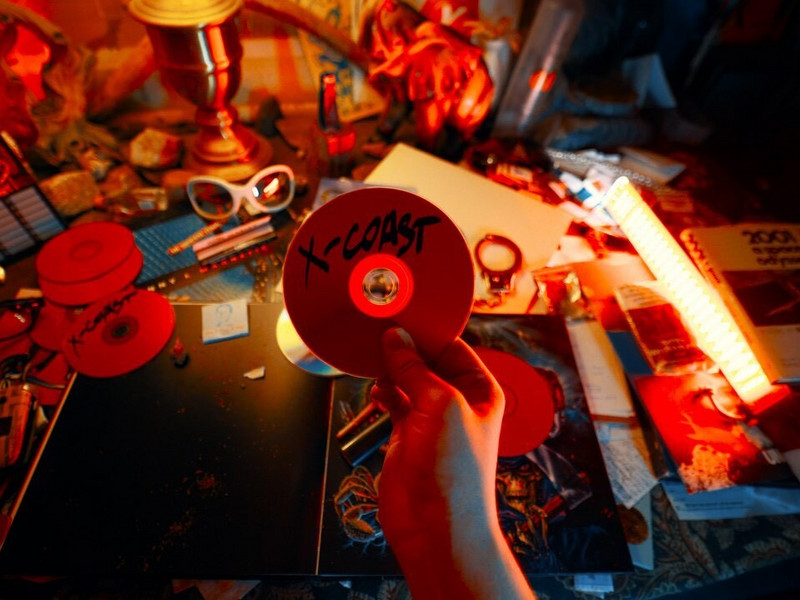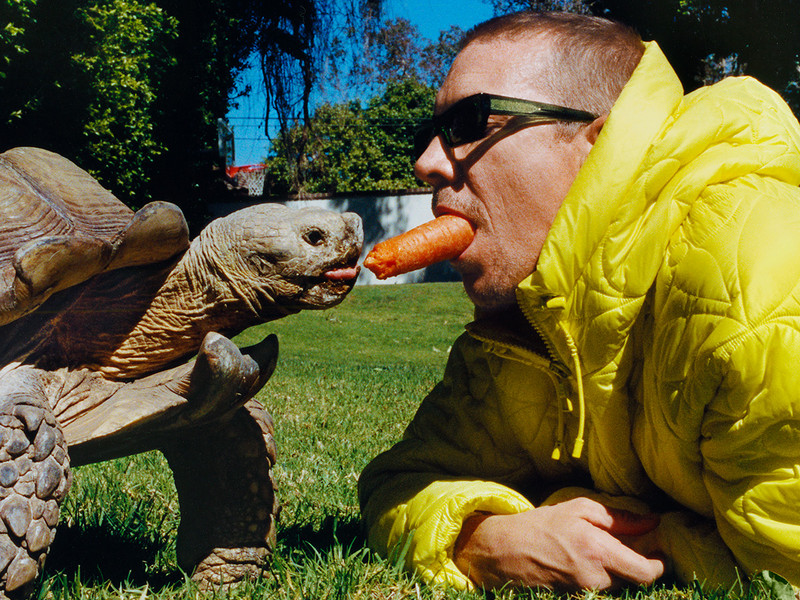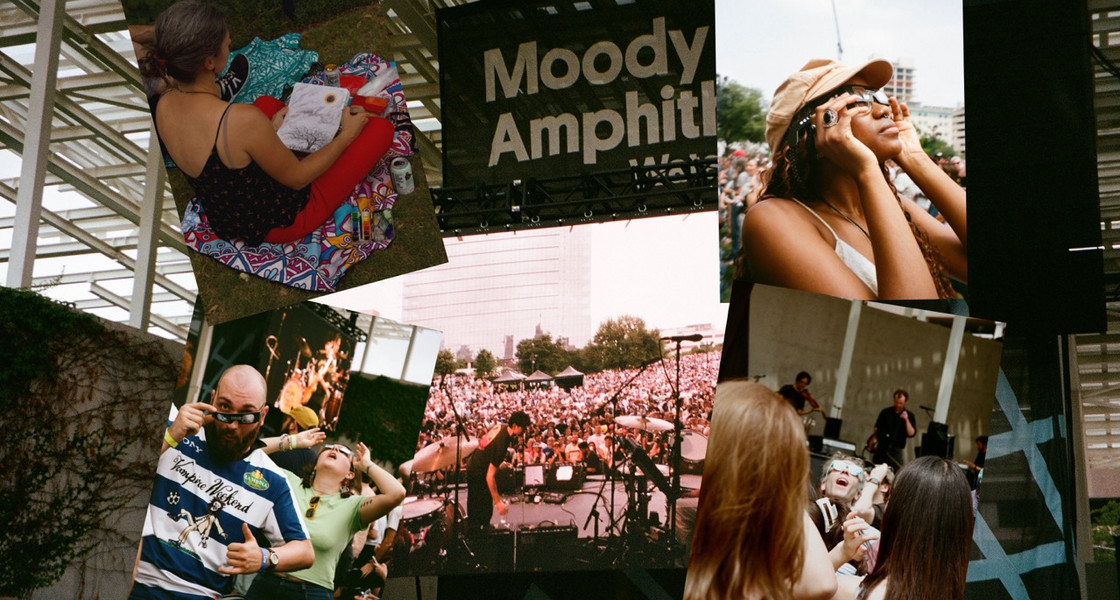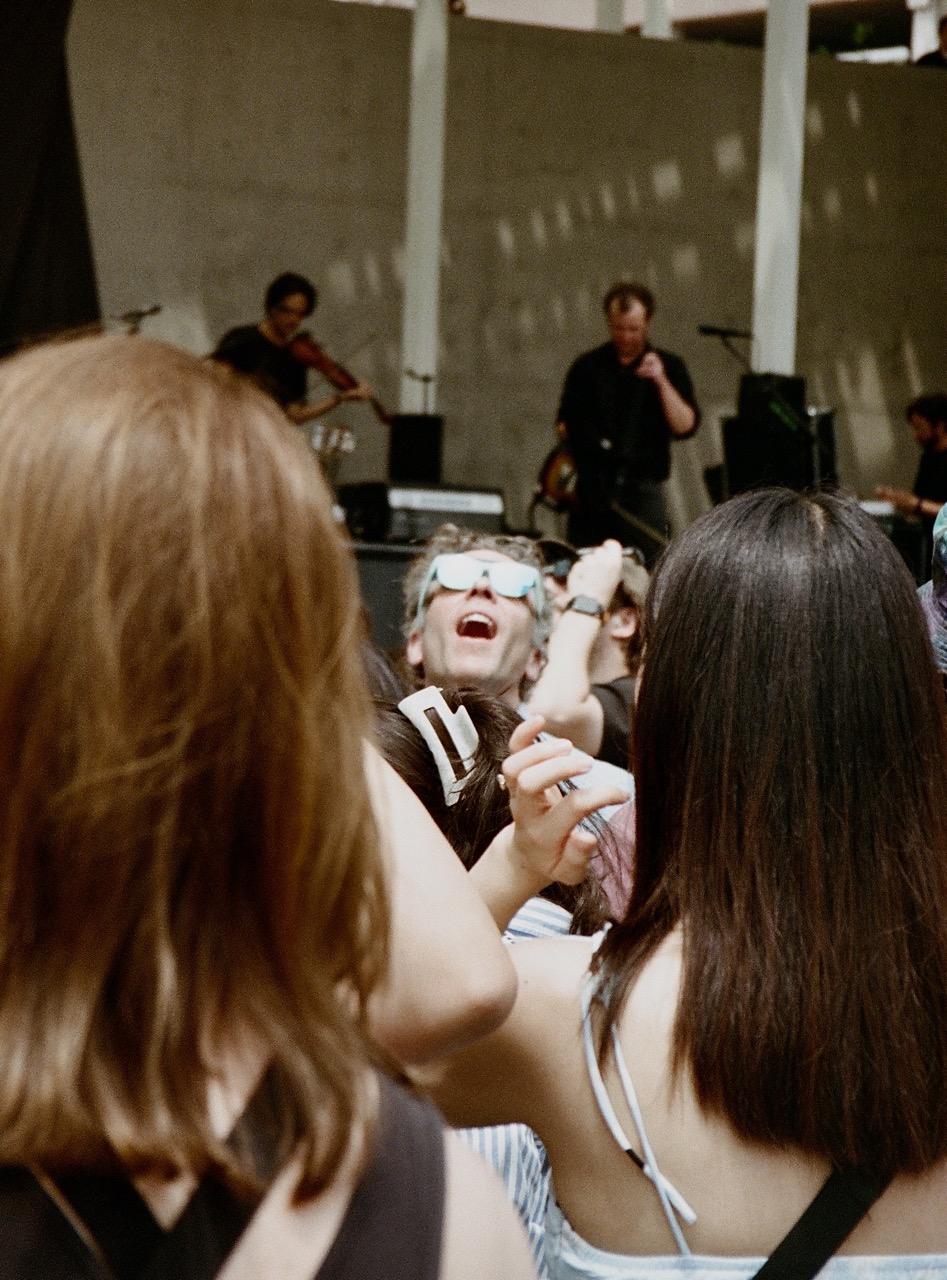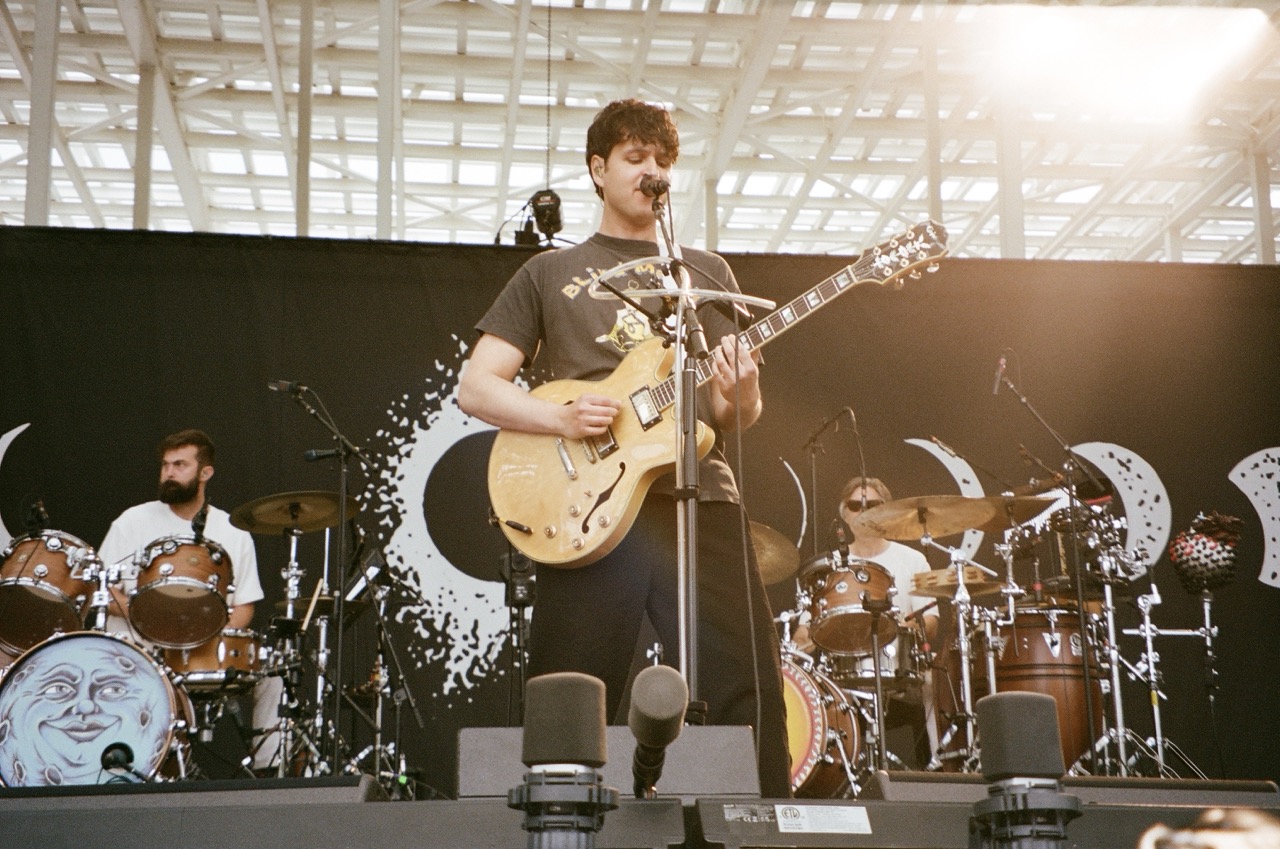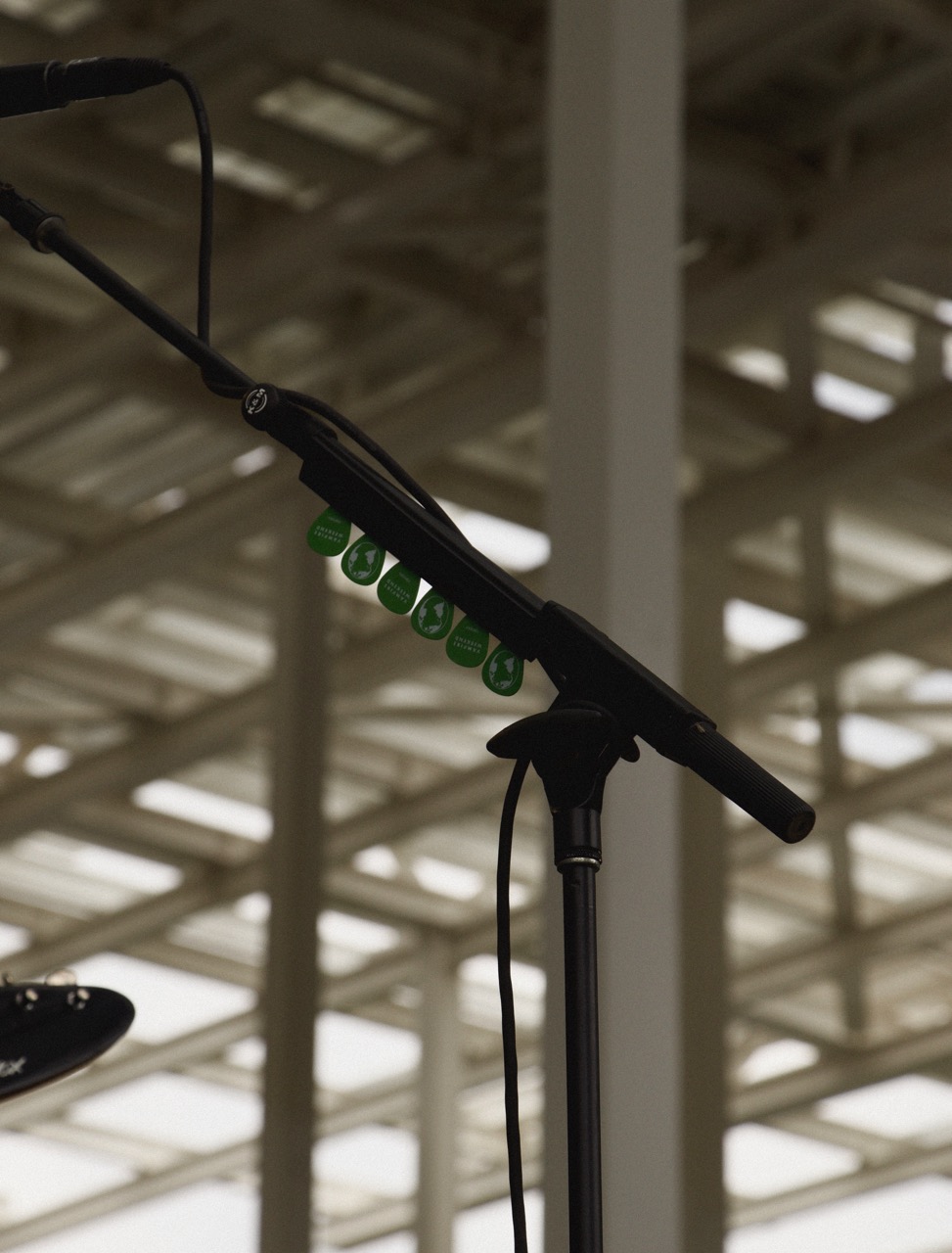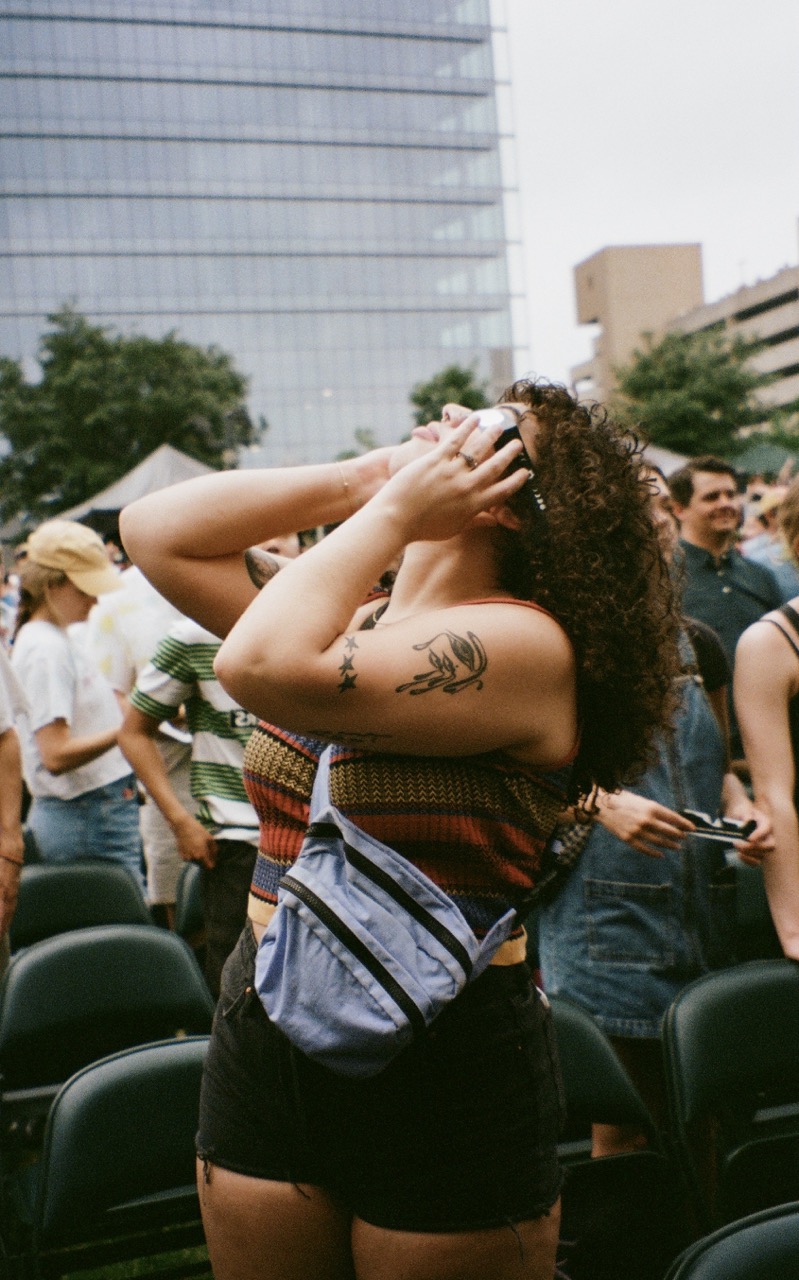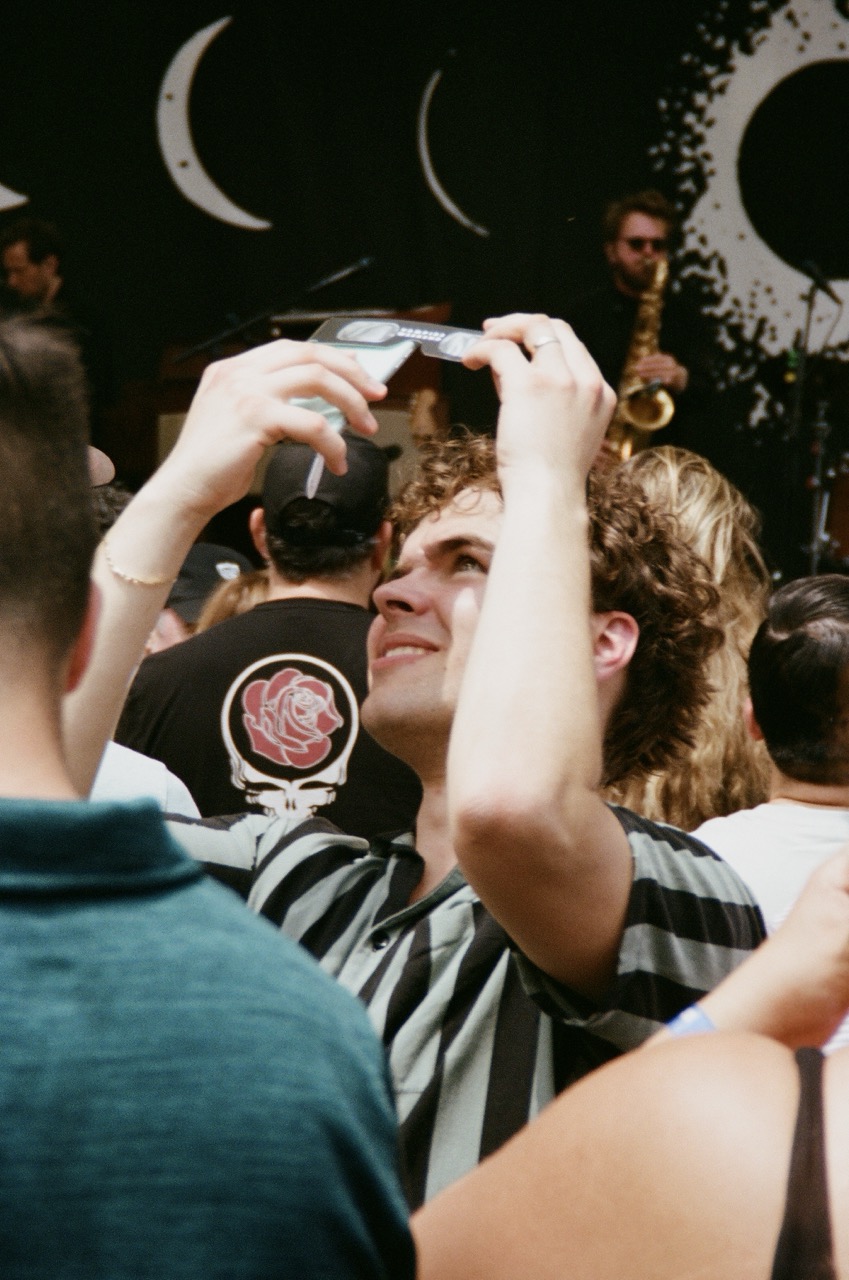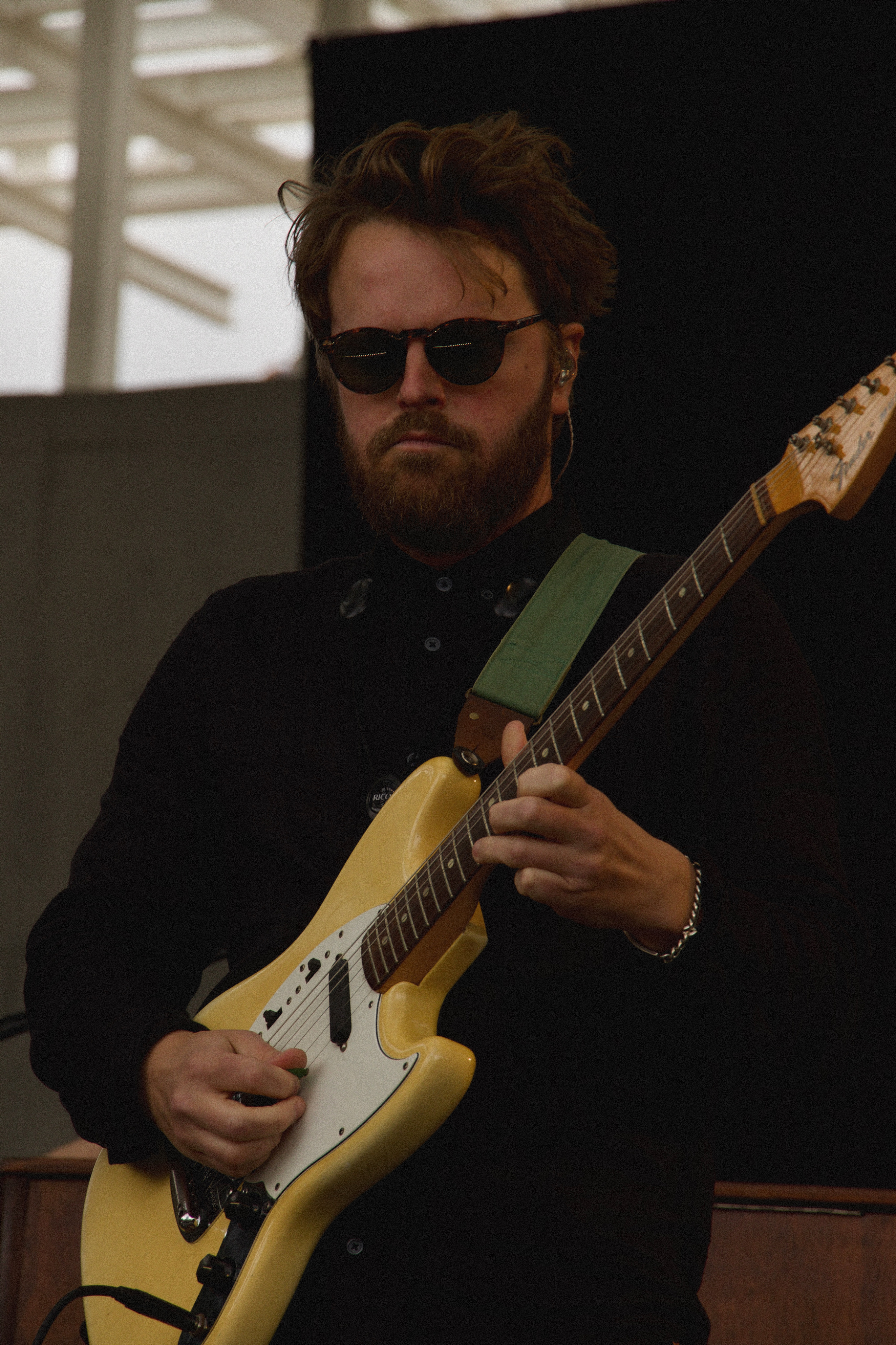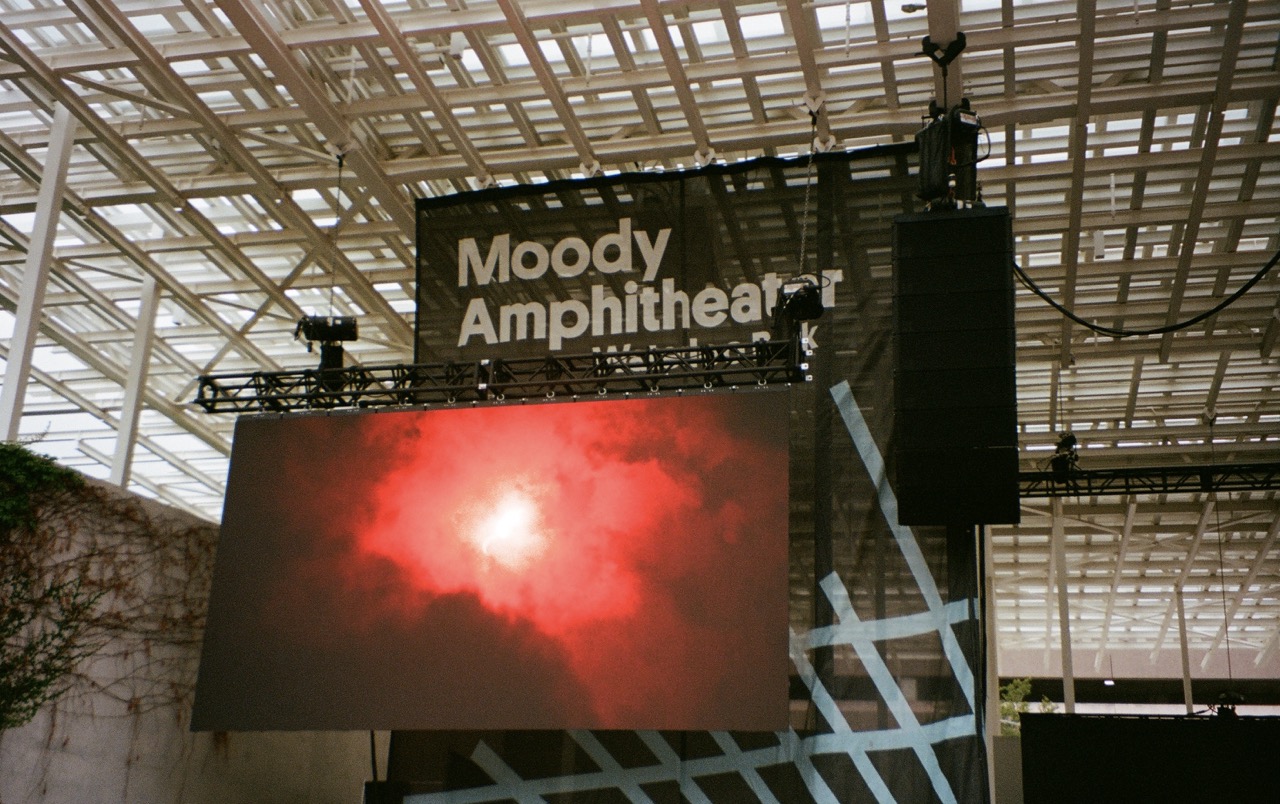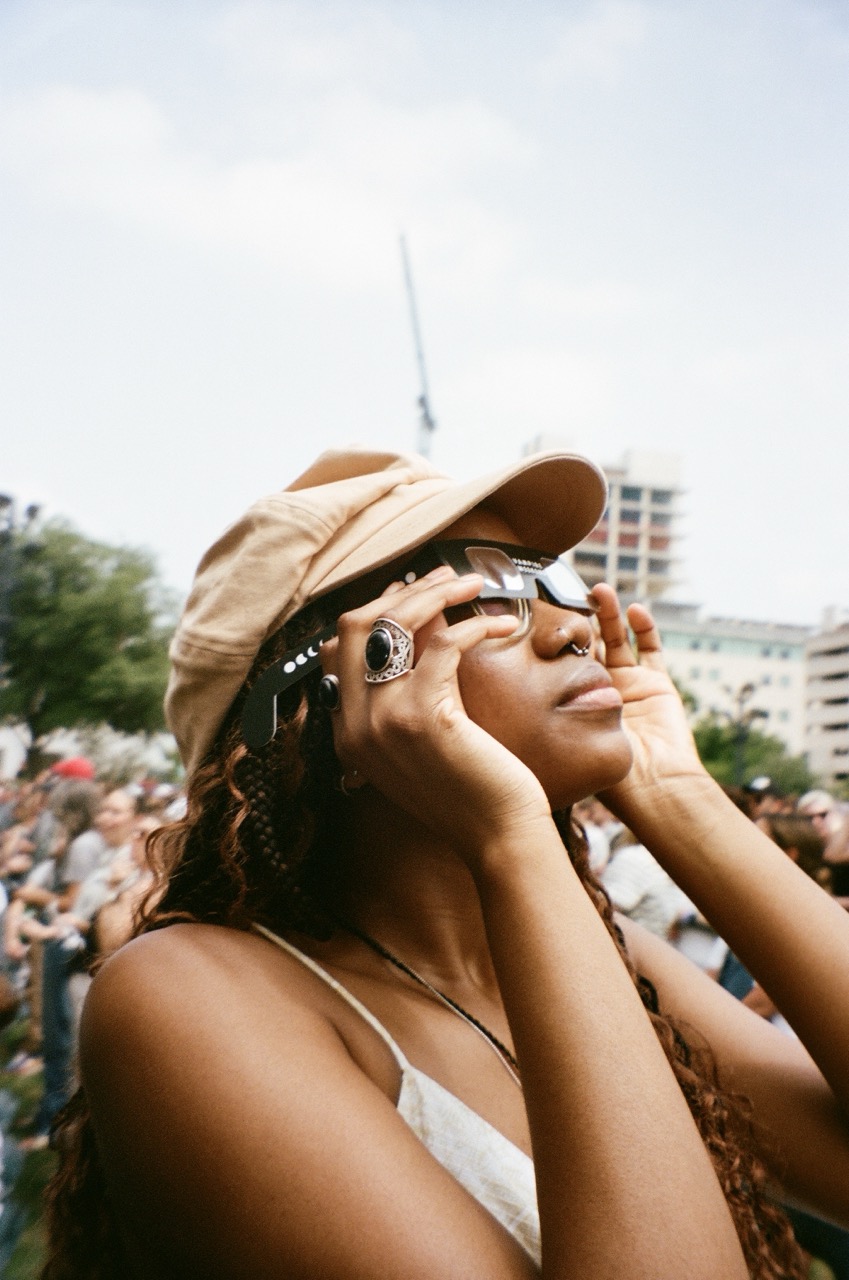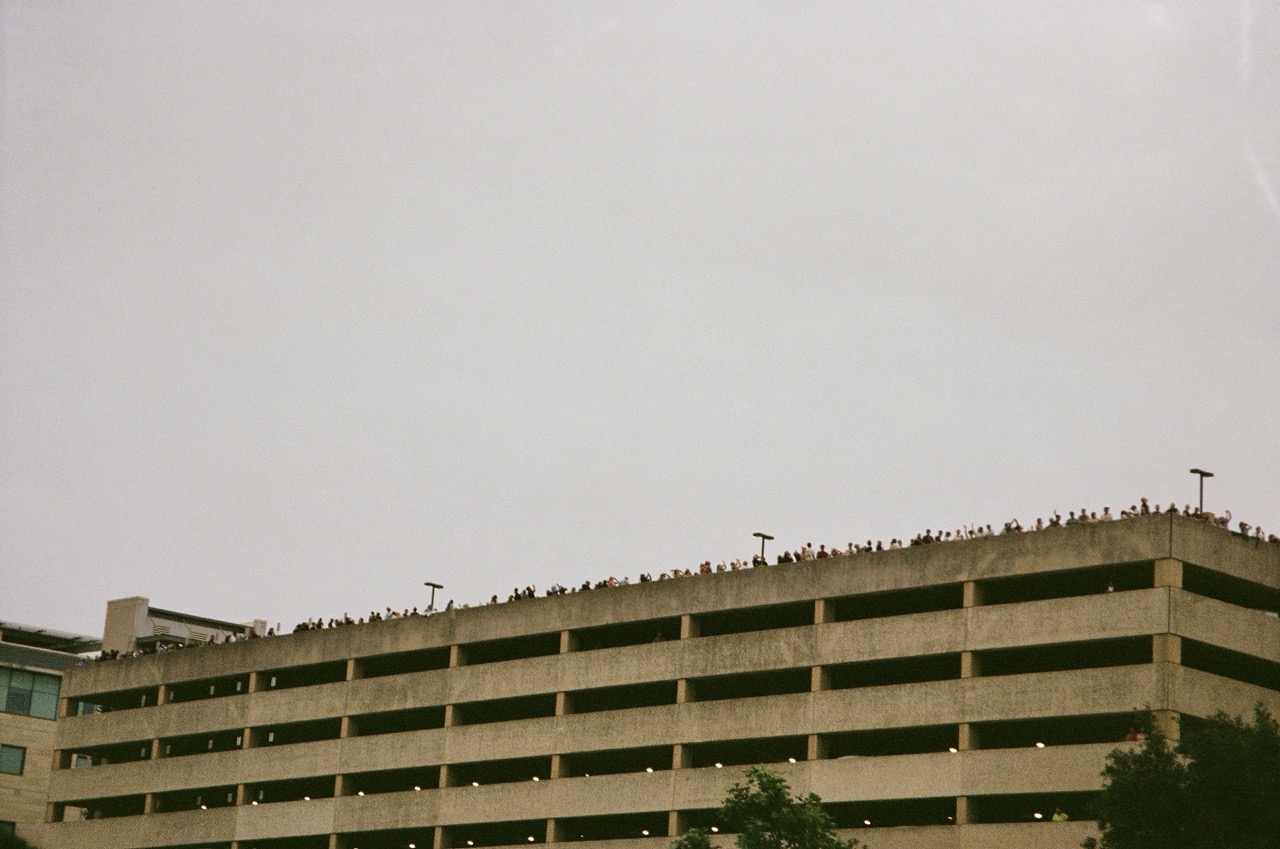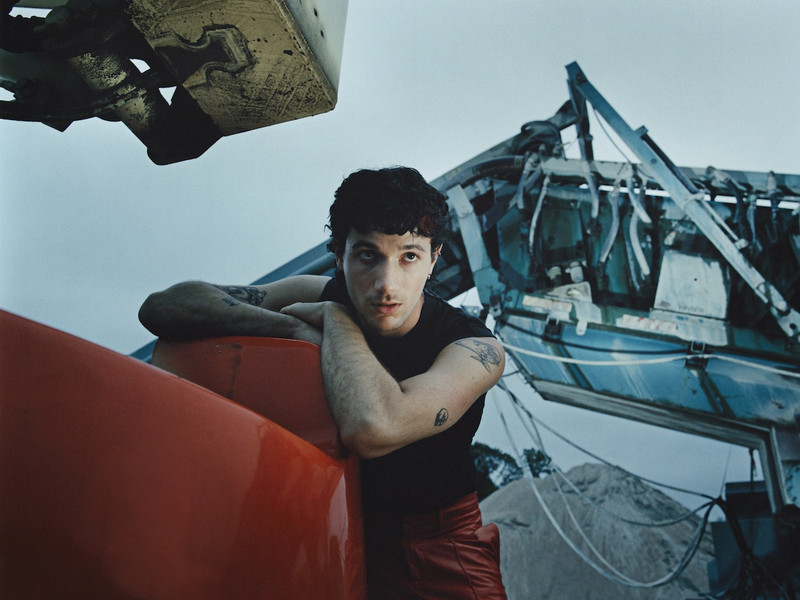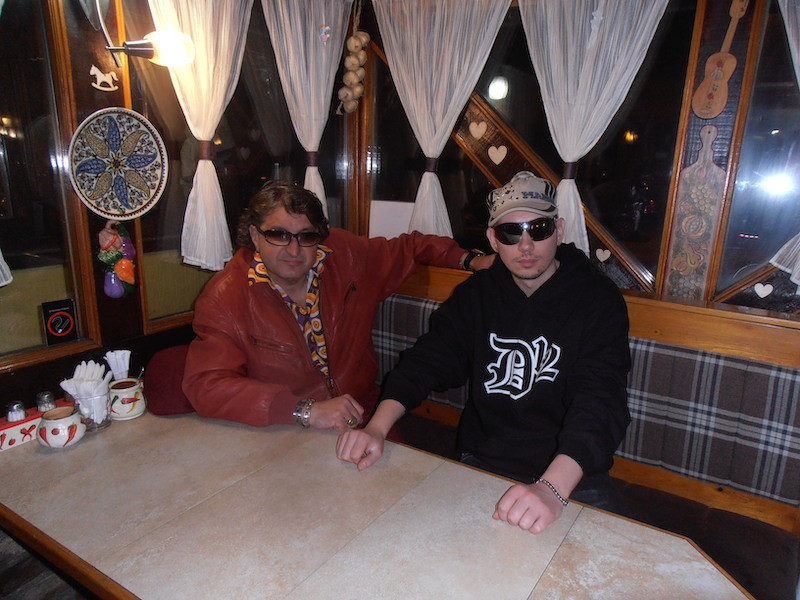Will You Be Mads Jensen's Hot Drug Dealer?
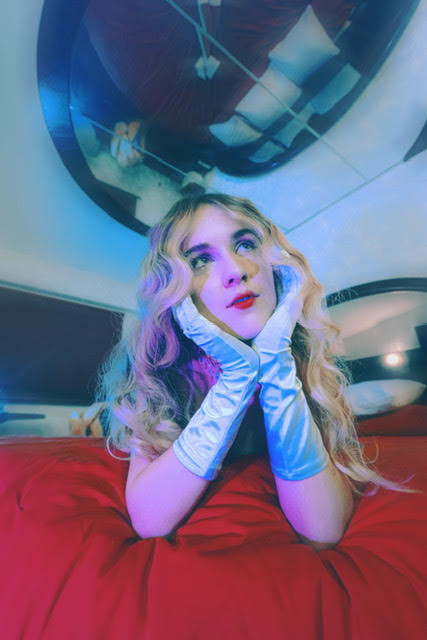
Inspired by the likes of ABBA, Queen, and Cristina, Jensen refuses to settle for one genre or sound. Writing lyrics from the heart and setting them to music that draws her in at that current moment— there are no rules when it comes to her music. office got the chance to sit down with Jensen to discuss her road to making music, the Morman church, and her hot drug dealer.
Check out the interview and video for Hot Drug Dealer below.
How are you today?
Surprised! I intended to wake up this morning and play pool at my dad’s Las Vegas bachelor pad, but am presently sitting on a rooftop in Mexico City with some new friends and a dog named Pony- about to visit some recording studios. If you caught me last year, you’d find a more cynical Mads. I’ve got a sardonic clown on one shoulder and a maudlin fairy on the other- it used to feel like the quibbling was constant and no one would win. Since accepting that my present reality is being in motion, I’ve grown more comfortable embracing uncertainty. This period feels imbued with a sort of hope and magic that were absent from my life for quite some time. So, today I feel open and hopeful!
When did you first start making music?
Growing up I trained to be a ballet dancer but got an injury when I was 15, so suddenly had all this newfound free time. My parents sent me off to live in Manhattan, Kansas for the summer, where I worked as a secretary at a counseling center. In Kansas, I was completely disconnected. I’d bike around the prairie, try to teach myself guitar, and shifted the loss of ballet into writing prose and poetry because no matter where I was, what resources were around, I could always write. In town there was a donut shop that handed out free donuts to people who sang. So this became my routine- bike to work, sing for snacks, practice guitar in corn fields.
One day I got the idea to visit all the coffee shops in Aggieville to see if they’d let me perform. These gigs started with covers til I eventually slipped in some of my own songs. It was terrible- I’d try to make rap songs into hymns, experimented with Gregorian chants, and singing in cursive. The confidence I developed playing incognito in Kansas evaporated upon my return to Utah, so I went back to writing and forgot about making music for a time. Ultimately, I think all creation in my life has come about from a similar potion: some eruptive spiritual or physical transition and loss that leads me to adapting and making sense of situations through creation.
What was the first piece of music that made you want to make your own music?
“If You Could Hie to Kolob” made me want to make my own music, and the Shaggs made me feel like I could share it.
You grew up in the Mormon church, what kind of music did you listen to growing up?
My mom had me out of wedlock at 18, so the first few years of my life I lived with my grandmother in Pleasant Grove, Utah. She’d blast opera, Vivaldi, or the Mormon Tabernacle choir every morning. My great aunt was a Danish actress, Lise Ringheim, who did voice dubbing for Disney cartoons like Cinderella- so I listened to her songs a lot, too. My biological father was the rough and tumble, hunting, chewing tobacco type- obsessed with rock n roll. He’d call me Little Wing and signed his name “Jimi Hendrix”- still does. When I was with him, I’d hear a lot of Hendrix, Zeppelin, and Stevie Ray Vaughan.
Throughout my childhood, I’d have intense phases of musical obsession. ABBA, Hilary Duff, Johnny Cash. In the third grade, I went by June and wore all black for a whole month. Then, I saw Phantom of the Opera, started going by Christine, and would light a bunch of candles around my house and welcome playdates by singing the theme song dressed as the phantom- holding their hand, guiding them around my pseudo-lair. When I was ten, I found a Queen CD at the library and got obsessed with Freddie Mercury, secretly renting out documentaries and learning about some not-so-Mormon-friendly scenes.
What was your relationship to music like when you were growing up?
I was always in the church choir, and also eventually developed a bit of a transgressive relationship to music. On Sundays I wasn’t allowed to listen to anything but “holy music”, and was also generally discouraged from listening to a lot of pop and radio music because of its “worldly” themes. Once in Seminary, I endured a whole lesson on how evil works through modern music, as we dissected the sinful subliminal messaging of Katy Perry’s “Teenage Dream”. I learned it was surely out of the question to put your hands on me in my skin tight jeans.
Throughout high school, I went to a new school every year and used music as a means of connecting to communities I hadn’t had access to. Senior year I was living in Charlotte, North Carolina and had the idea to start a music blog. I’d write the PR teams of bands passing through town, called myself a local journalist, and requestested to interview them. Most of the time, I’d get a no, but would often receive free passese to shows. I got to interview bands like Phantogram, Sleigh Bells, Joywave, and Craft Spells, which was super exciting. Having had such a nomadic upbringing- homes, friends, and family would change- but there was always church, and there was always music.
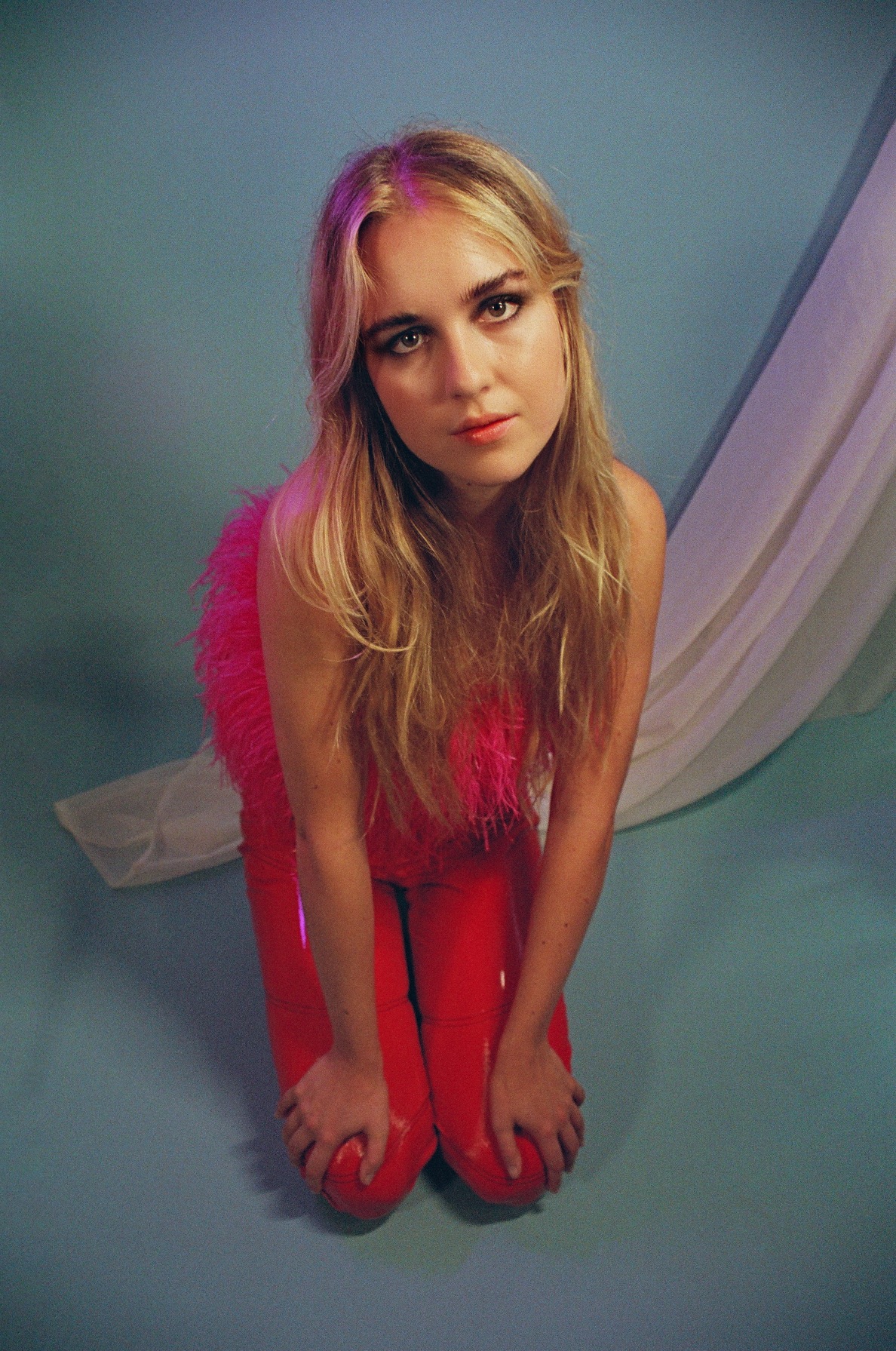
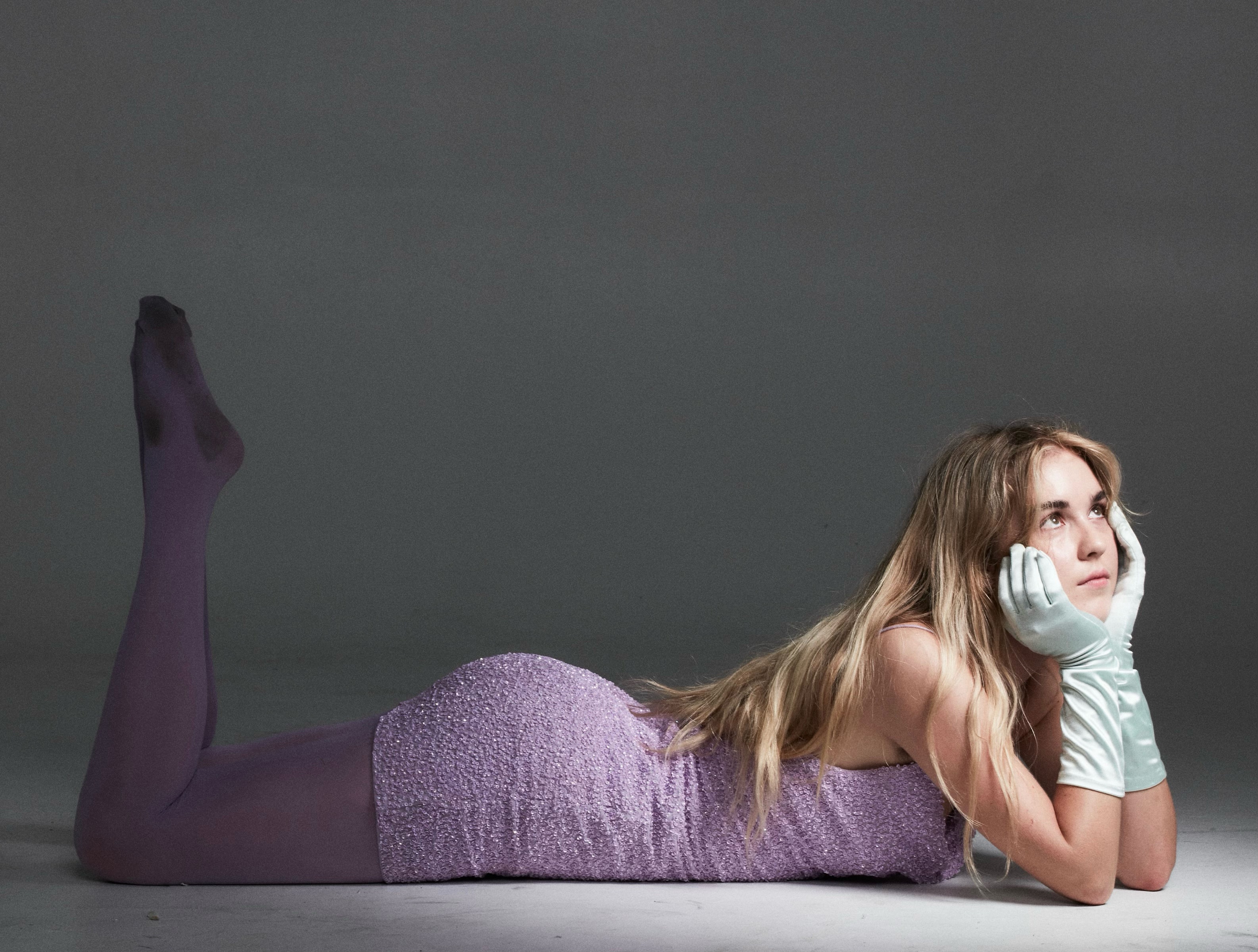
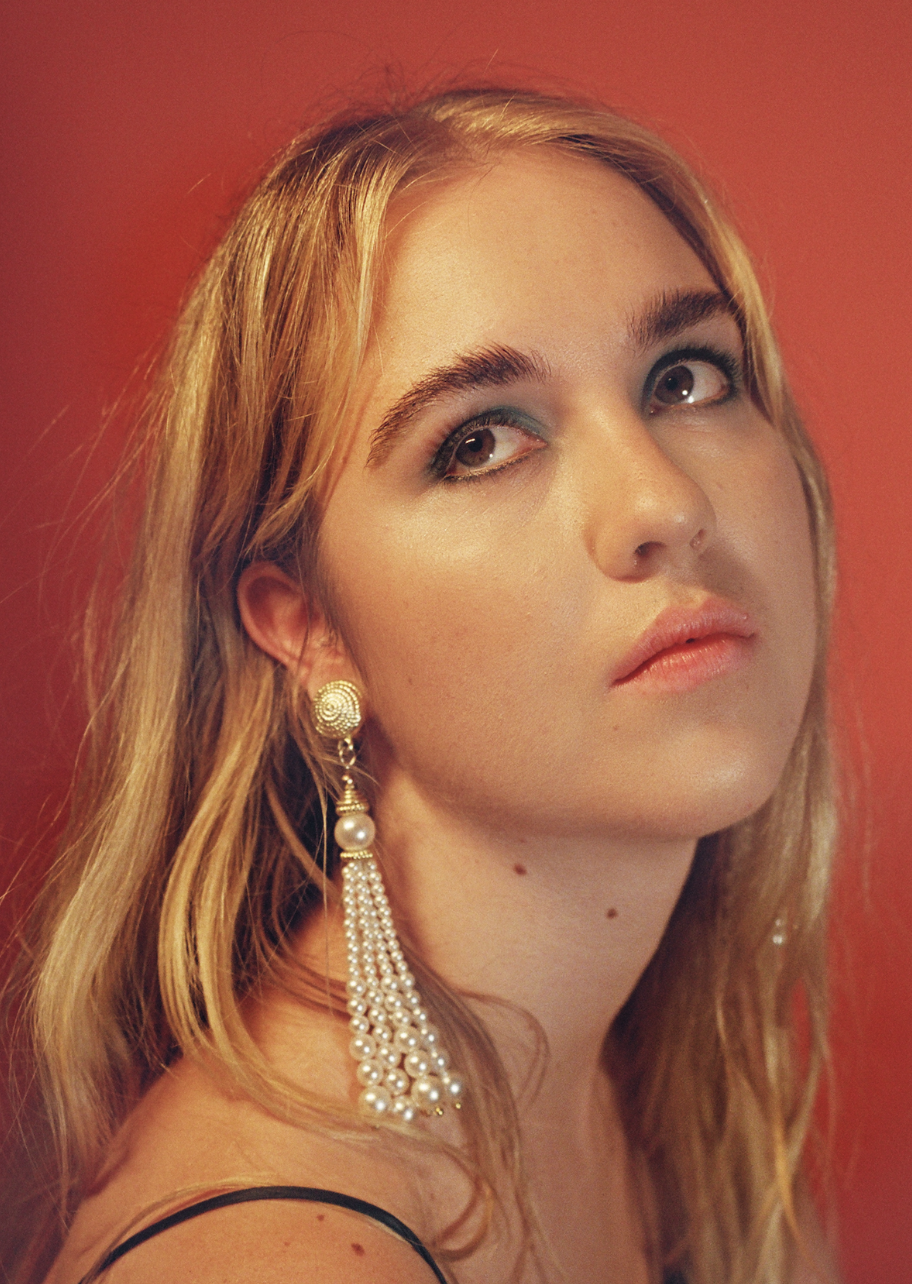
You moved to New York at 19, correct?
Yes, and it was not an easy feat! After high school, I enrolled at Brigham Young University in an attempt to rediscover my faith. I couldn’t show my shoulders or knees, drink coffee/alcohol/tea, have multiple piercings or dye my hair any fun colors, and I also couldn’t be openly queer. I understood that leaving BYU and my religion would have serious, life-altering consequences on my education and family, but I was deeply attuned to this sadness and unease welling up in me. I felt like I was lying to everyone, and even moreso, knew I wasn’t being true to myself. I wanted to be absolutely sure that leaving was the right decision, something I was truly capable of, so I began taking Craigslist rideshares or Greyhound buses out of town to flirt with the idea of pursuing a different path.
On one of these trips, I missed a late night bus in Las Vegas and downloaded Tinder to pass time. I matched with a musician and fell almost immediately head over heels in love. One year later, I stuffed my belongings into garbage bags and set off from Provo to Los Angeles- fueled with the sort of confidence that comes with first love. There, I saved up funds with the intent to eventually move to New York, and heard about a program at Columbia University for people with nontraditional paths called GS. After ten months in L.A. I moved into a little windowless walk-in closet of a room in Ridgewood, Queens at 19, got a job at a restaurant, and started studying at Columbia.
How was it for you to break away from the life you grew up with in the church?
Have you seen the Truman show? I felt like Truman when he left his T.V. show world. Growing up the way I did gave me so many blind spots- culturally, interpersonally, and politically. I didn’t have artistic or intellectual figures in my life or examples of people who’d successfully constructed happy lives outside of the church. So when I ran away to L.A., the idea was I’d fling myself out into the big bad secular world to find myself- to find salvation. I’d also listened to Lana del Rey’s record when I was 15 and was immediately like, “Boom! I want to run off to the desert, brush shoulders with renegades, and fall in love with cartoonish humans who probably aren’t good for me. I want stories!” Later, I’d realize I traded in one sort of mystical religious belief, Mormonism, for another- romantic love.
I went from being a teenager studying at a conservative university in Utah to being a teenager navigating a big new city, living with my first partner who was much older and more experienced than me. At that time, I didn’t know how to operate. I had virtually no boundaries because I’d been told exactly what was right and wrong my whole life. The set of rules which often felt despotic and suffocating oddly made my life feel easier- especially when it came to making choices and just generally navigating the world. Religion says, “Here, these are your answers. Abide by these rules and be whole. Don’t drink, be virtuous, abstain from evils.” I made this major leap away from my old beliefs and felt liberated, yes, but also terrified because I didn’t know what my own morals were. I was out of touch with the world, my own instincts and boundaries. I’d no intrinsic belief in my own decision-making because I’d been told exactly what was right and wrong my whole life. And on top of it all, my new friends and the people I dated had no way of wrapping their minds around this.
How can you expect people- who I thought of as so urban and savvy- to look at a seemingly intelligent, confident, articulate young woman and try to explain to them, “I know nothing. I feel like I’m going to hell for having coffee with you right now. I don’t know how to be a normal person, without a god.” Often, I think when people separate from their faith, they are left with an ache, this massive hole that religion used to fill. Where do you find community now? Where do you feel a sense of belonging? For a time I tried to fill this hole with an ivy education, by getting writing published, sometimes I’d go to 12-step meetings I had no business being at- but mostly, I tried to fill the void of religion with love. From 18-22 there was so much loneliness, so much strangeness in losing the community that Mormonism provided for me. It wasn’t until I started clowning and making music that I began to feel less of that emptiness, and more sure of myself.
What do you wish you could tell 19-year-old Mads now?
“Your fantasies and the world you’d like to construct are worth pursuing. Be wary of Svengalis and Casanovas who may veer you off your path. Don’t allow a savior complex to cloud your instincts, nor allow self-doubt to delay art.”
How has your sound evolved since you first began making music?
I’m still quite new to making music, as I started recording for the first time a little over a year ago. I’d been mulling around the desert after my first real heartbreak and finally decided to move back to New York, where I reconnected with an old friend, Jesse Harris. Amidst that desolate pandemic winter, he’d host these heartwarming dinner and music gatherings. After one of these little parties, I asked him to help me record some songs I’d written to have something to show for the pandemic months. He kindly agreed. Pretty much every song we’ve recorded together is different. Musically, it’s all over the place- there’s some spoken word, disco, punk- yet it’s all strung together with common thread of storytelling, character, and voice. From the get-go, my music has been evolving. I’m learning as I go. I hope to continue experimenting sonically while keeping the bones thematically true.
Tell me about Hot Drug Dealer, what’s the story behind it?
I wrote Hot Drug Dealer while living in L.A at the beginning of the pandemic, when there wasn’t much else to do other than tend to daydreams and play the sims. The star of one of my fantasies was a hot drug dealer who lived down the road and was barely cognizant of my existence- an ideal entity to harbor daydreams for. At the time, I’d been listening to a lot of ABBA and Cristina, which inspired elements of this disco–inspired bop: playful, earnest, and cheeky.
What is next for you?
I’ll roll out more singles from my debut project “Now That I’m A Woman”, collaborate with more people- maybe incorporate more of my alter ego Carrington the Clown.
